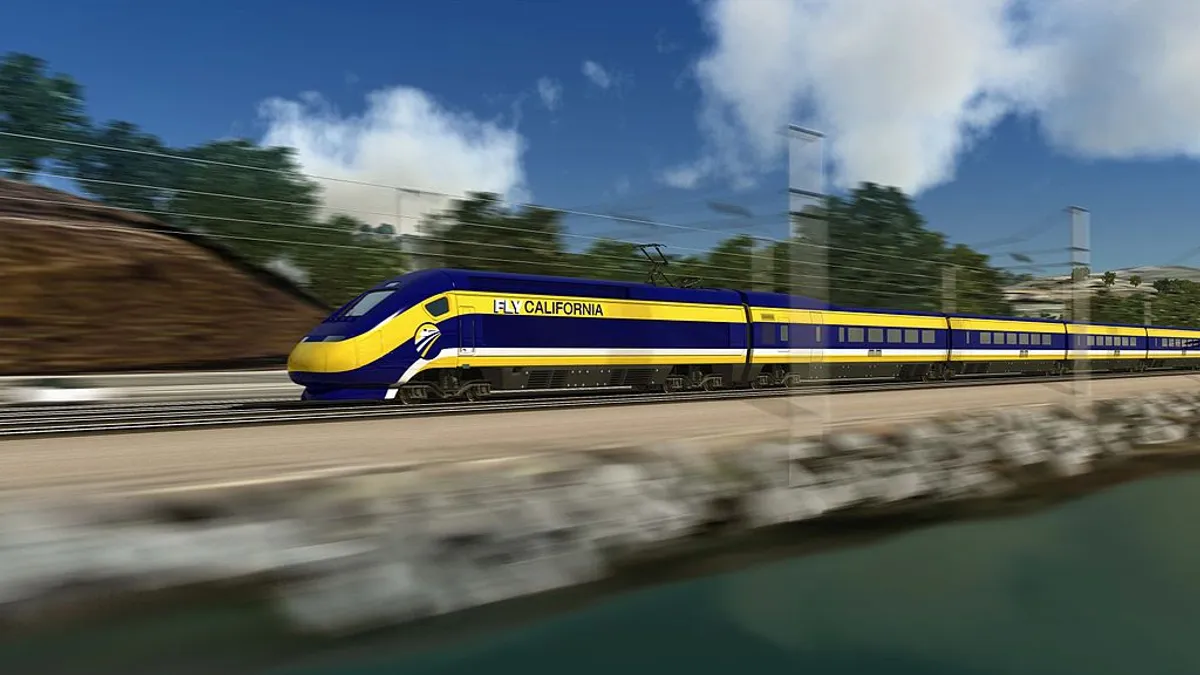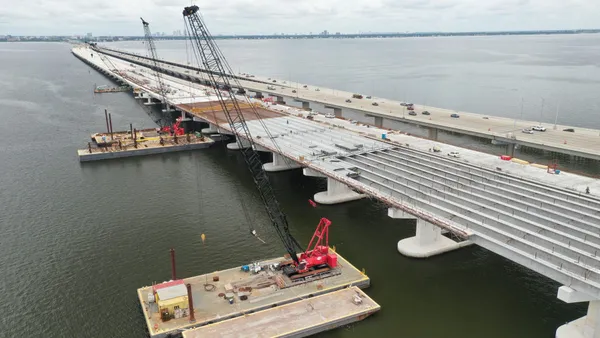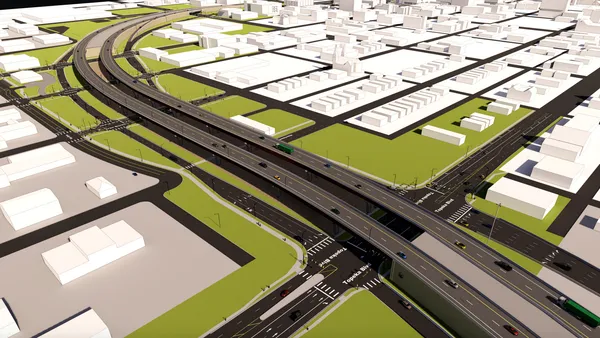Dive Brief:
- The $64 billion California bullet train project has picked up a four-year start-of-service extension and a possible cash advance due to a revised $2.5 billion Department of Transportation grant, The Los Angeles Times reported.
- This is the fifth modification to the terms of the grant and comes after the DOT sent a letter to the authority in which it told bullet train management to step up progress or risk losing funding.
- Republicans in Congress have criticized the move, calling it an "unprecedented concession," but California High Speed Rail Authority officials said it’s primarily a "technical fix" to reconcile the grant with recent changes to their revised plan.
Dive Insight:
House Republican Jeff Denham told The Times that instead of monitoring public funds, the DOT has created a conflict of interest by giving bullet train officials a "blank check" for a cash advance. The Federal Railroad Administration said the new terms of the "use it or lose it" grant still require the authority to spend the money by 2017, but Denham said he believes an amendment may be in the works for an extension to that as well.
The California bullet train hasn't exactly followed the path of a smooth public works project. When the rail was first announced, its initial route was to run from Burbank to Merced. That proved too expensive, so the authority changed its plan and opted for its first operational segment to debut in Northern California — postponing costly and time-consuming tunneling to the north of Los Angeles in an effort to get a part of the system up and running as soon as possible.
During all of these changes, The Los Angeles Times began an investigation into the project's finances and operational issues, which spawned further investigations and a series of articles putting the rail's feasibility and financial stability into question. The Times focused on a Parsons Brinckerhoff report that found the first phase of the rail project would cost $9 billion more than the authority told state legislators during the project's state approval process. Since The Times' coverage began, lawmakers have conducted several hearings to determine the exact financial and operational status of the rail system.
In a more recent Times report, it found that the project had accumulated at least $400 million in extra costs, primarily due to delays in securing the land that will be used by the system. According to The Times, the authority announced construction would begin on the rail before 50% of the land was purchased. So far, contractor Tutor Perini has submitted change orders in the amount of $51.7 million with a possible $95 million to come, and subcontractors have resubmitted their bills to reflect increased costs of 10% to 30%.













